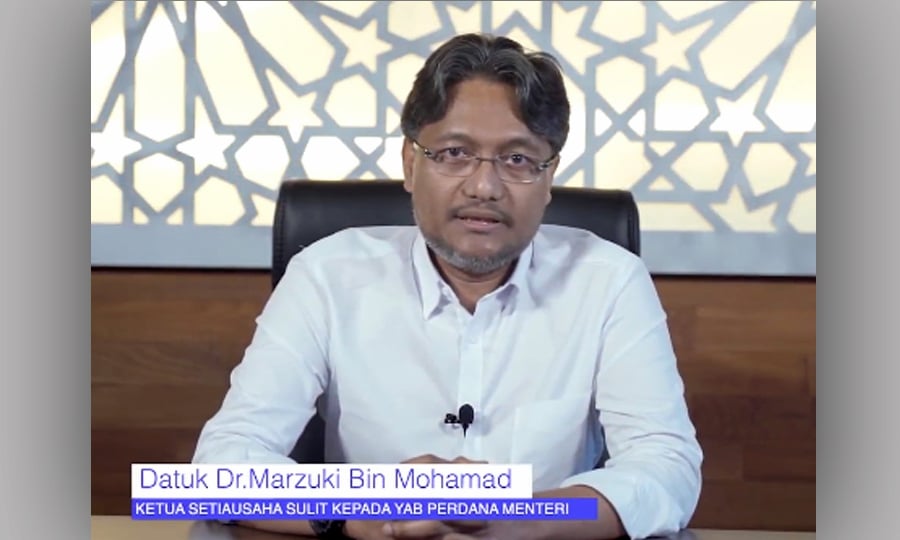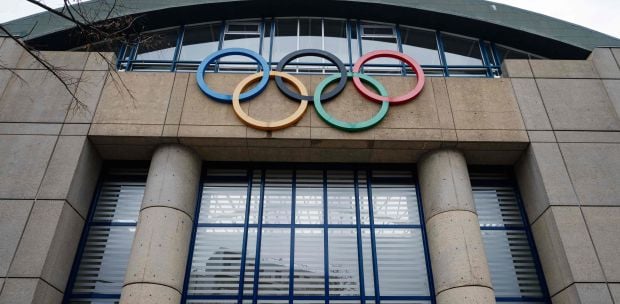KUALA LUMPUR: The National Operations Council (NOC), as proposed by some quarters, is not suitable in Malaysia's current fight against Covid-19 and its efforts to revive the economy.
Principal private secretary to the prime minister, Datuk Dr Marzuki Mohamad, said the proposal could become a step backwards and inhibit all efforts that have been put in place to tackle the ongoing health and economic crisis.
In citing history, he said the NOC was set up to function with absolute powers following the emergency period after the May 13, 1969 riots.
He said the NOC had been set up amidst a very different crisis, and it had happened when the country was under a caretaker government because the events which led to its formation occurred days after the country held a general election.
"I want to share a bit of my opinion on a few issues related to the management of the emergency in our country. Lately, there have been several quarters who gave various views on how the country should be managed amidst the Covid-19 pandemic.
"Some have proposed to the Yang di-Pertuan Agong Al-Sultan Abdullah Ri'ayatuddin Al-Mustafa Billah Shah to set up the National Operations Council (NOC) or (known by its Bahasa Malaysia acronym) MAGERAN (for Majlis Gerakan Negara), which had fully governed the country following the proclamation of an emergency in 1969.
"What is meant by an NOC? As we know, after the 1969 general election, there were racial riots in the country which claimed lives. At the time, a new cabinet had not been formed, and the government which existed was a caretaker government.
"Subsequently, the Yang di-Pertuan Agong at the time had declared an emergency on May 15, 1969. During the declaration of the emergency, the Yang di-Pertuan Agong had promulgated the Emergency (Essential Powers) Ordinance 1969 (No 2), which was put into effect on May 16, 1969.
"Ordinance No 2 provides that executive authority of the federation under Article 39 of the Federal Constitution, and all authority provided for the Yang di-Pertuan Agong, is transferred to a director of operations, which was determined by the Yang di-Pertuan Agong; and, that Article 40 of the Federal Constitution, which is related to how the Yang di-Pertuan Agong acts on the advice of the prime minister or cabinet, is not applied.
"In carrying out his duties under Ordinance No 2, the director of operations is assisted by the National Operations Council, which comprises members who are appointed by the director of operations based on his sole discretion," said Marzuki in a video uploaded on Facebook Wednesday night.
Marzuki said a director of operations has the power to appoint members of the State Operations Committee in each state, and the District Operations Committee in each area or administrative district.
In turn, members who are appointed to these committees would need to dispense duties based on instructions, and implement policies which are made by the director of operations.
"Based on Section 2 of this Ordinance No 2, the Yang di-Pertuan Agong on May 17, 1969 appointed the deputy prime minister at the time, the late Tun Abdul Razak Hussein as director of operations. Absolute executive and administrative authority were given to the director of operations and the NOC."
Marzuki said the current situation in 2021 was far different from what happened in 1969 due to it being a health emergency and not a security emergency, and due to the existence of a functioning cabinet now.
"We have a working and functioning cabinet. The cabinet convenes every Wednesday and many decisions are made not only related to the Covid-19 pandemic, but also in regards to the country's administration, economic management, people's welfare, finance, security, defence, education, international relations and other matters related to the overall governing of the country."
He said the current times were different because the government also has several specific mechanisms to tackle the Covid-19 pandemic.
"Firstly, there is the National Security Council Special Meeting in Relation to the Management of Covid-19, which is convened at least twice a week. This meeting is chaired by the prime minister and attended by the related ministers, menteris besar and chief ministers who represent their respective state governments, the chief secretary to the government, attorney-general, armed forces chief, inspector-general of police, health director-general and related government agency heads."
Marzuki said among the permanent agenda of this meeting is for the health director-general to report the current situation of the pandemic, and important decisions are made based on data and facts which are tabled.
"Among the decisions include those related to the implementation of the Movement Control Order, limitations to economic and social sectors, which are done to curb the spread of Covid-19 infection.
"Besides that, the senior defence minister will chair the National Security Council's Technical Committee Special Meeting to scrutinise subsequent actions that need to be taken by related ministries and departments for the management of the Covid-19 pandemic.
"Secondly, there is the National Security Council Special Meeting Related to the Emergency, which convenes at least once a week. This meeting is chaired by the prime minister to discuss the emergency ordinances that need to be promulgated by the Yang di-Pertuan Agong for the purpose of helping the government tackle the Covid-19 pandemic more effectively.
"Thirdly, there is the Covid-19 Vaccine Supplies Access Guarantee Special Committee, which is (jointly) chaired by the health minister and the science, technology and innovation minister, who are responsible for planning and implementing the National Covid-19 Immunisation Programme."
Marzuki said currently, the number of Covid-19 vaccines administered has exceeded 100,000 doses per day. He said the highest figure which was recorded so far was 151,000 doses in a day.
He said with the country receiving more vaccine supplies, Malaysia's vaccination rate could soon increase to more than 200,000 doses per day.
He said this would lead to the country successfully achieving herd immunity before the end of this year.
"Achieving herd immunity through vaccinations is our way out of the Covid-19 pandemic."
Marzuki said, due to the suitable mechanisms in place to manage the emergency, any suggestion for an NOC would affect various efforts which have been mobilised to manage the pandemic and see to Malaysia's economic recovery.
"The call for His Majesty the Yang di-Pertuan Agong to set up an entity with absolute powers like the NOC is not a suitable move. It would be a step backwards, and it would inhibit the government's planning and all efforts that have been put in place by civil servants, frontliners, the industrial sector and the people in their efforts to see to the country's recovery from the current economic and health crisis."
Marzuki said Prime Minister Tan Sri Muhyiddin Yassin's announcement on the king's declaration of an emergency this year did not mean the country was placed under any form of absolute authority similar to military authority.
"The civilian government remains functioning. Traits of this civilian government must be defended throughout this emergency period.
"It must be reminded that the government is not merely managing a pandemic, but it is also managing the welfare and lives of the rakyat. Various ministries and department are functioning to deliver various aid to the people. These include economic stimulus and financial packages which had been announced by the government."
Marzuki said the latest among these was the RM40 billion Pemerkasa Plus with its RM5 billion fiscal injection.
He said the delivery of the aid must be continued by related ministries and agencies under this civil administration without any disturbance from any quarter who may possess absolute power.
He said the government harbours hopes for things to return to normalcy once almost all of the population has received their vaccines to achieve herd immunity.
Once this was done, economic and social sectors could reopen, and the people would be safe against Covid-19 infection, he said.
"At that time, I believe political activities and the democratic process could also run more vibrantly. We will be seeing a more vibrant political and democratic process. It would not just be about holding parliamentary sessions, even elections could be held.
"So, for the meantime, let's focus first on our efforts to overcome the problem of Covid-19. With vaccinations being stepped up and the Movement Control Order, I believe we will need just a little bit more time to get out of the crisis we currently face. Be patient, stay at home, and insya Allah, we will win," he said.






